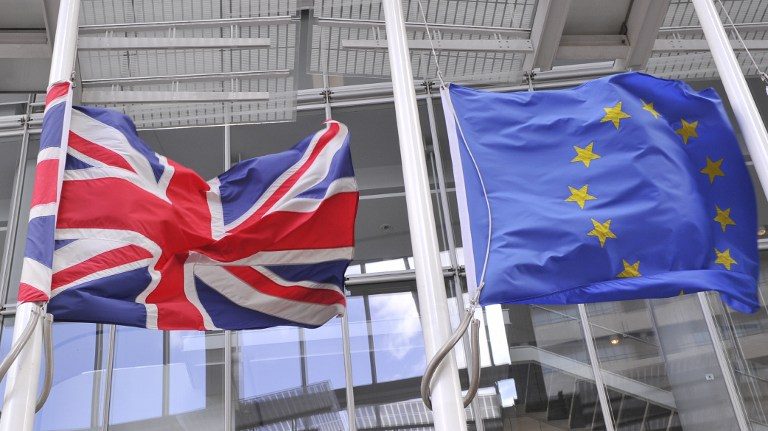SUMMARY
This is AI generated summarization, which may have errors. For context, always refer to the full article.

BRUSSELS, Belgium – Britain and the EU on Thursday, September 28, hailed the progress of “constructive” Brexit divorce negotiations following a major speech by Prime Minister Theresa May, but Brussels warned that trade talks may still be months away.
Speaking after the 4th round of talks in Brussels, European Union negotiator Michel Barnier and his British counterpart David Davis agreed that May’s speech in Florence had created a “new dynamic” for the discussions.
But France’s Barnier said more progress was needed on divorce arrangements before they could move on – as Britain wants to do now – to discussing a future relationship including a possible trade deal.
“We have had a constructive week, yes, but we are not there yet,” Barnier told a news conference with Davis.
“It will take several weeks or months until we can say there is sufficient progress on the principles of an orderly withdrawal.”
Britain voted to leave the EU in a shock referendum result in June 2016. (READ: Britain wants post-Brexit security treaty with EU)
EU leaders are set to decide at a summit in October whether there has been “sufficient progress” on 3 issues: Britain’s exit bill, the fate of Northern Ireland, and the rights of 3 million EU citizens living in Britain.
If they fail to agree then, the next chance will not be until a summit in December, with the clock ticking to reach a final deal before Britain formally leaves the European Union on March 29, 2019.
‘Decisive steps forward’
Davis struck a more optimistic tone than Barnier, saying that May’s speech had paved the way to unblock stalled talks, particularly on the Brexit bill which the EU reportedly estimates at 60 to 100 billion euros ($70.7 to 118 billion).
“Thanks to the constructive and determined manner in which both sides have conducted these negotiations I believe we are making decisive steps forward,” Davis said. “This was a vital week.”
May’s Florence speech offered concessions, including a pledge to honor Britain’s financial commitments for at least the two years after it leaves the EU in March 2019.
She also proposed a transition period of around two years after Brexit Day to allow citizens and businesses to adjust to the new situation.
But with the next round of talks starting on October 9, Davis and Barnier have clashed in particular over whether the European Court of Justice should keep primacy over British law for European nationals after Brexit.
Barnier also insisted there could be “no possible link” between Britain’s divorce bill and future relations – dismissing Davis’s warning earlier this week that the financial settlement depended on progress on a trade deal.
Pressure is growing on the negotiators to make progress and reduce the uncertainty for citizens and businesses in Britain and Europe.
Dutch Foreign Minister Bert Koenders called on Britain to stop “daydreaming” and get serious about the negotiations, while urging both sides to hurry up.
Britain’s main trade union association and business groups meanwhile issued a rare joint statement Thursday condemning the “intolerable” failure to agree the rights of expatriates after Brexit.
The leaders of the Trades Union Congress umbrella body and the CBI business lobby group said Brussels and London had been playing “15 months of human poker”.
MEPs call for delay
The European Parliament said in a draft resolution to be voted on next week that EU leaders should postpone their decision on progress until after their October summit.
MEPs will have the final say on any deal for Britain’s departure and will need “4 or 5 months” to discuss the agreement, according to the Parliament’s Brexit chief Guy Verhofstadt.
Delivering a speech on Thursday at the London School of Economics (LSE), Verhofstadt described Brexit as “a very negative project” which had nonetheless helped revive the popularity of the EU and spurred demands for change.
“People are less critical now of the union. They want to reform Europe – not to leave Europe, not to destroy it,” he told an audience including London Mayor Sadiq Khan.
European Council President Donald Tusk, who represents the EU member states, said after meeting May in London on Tuesday that there was “no sufficient progress” so far.
The British premier is set to meet her EU counterparts at a summit in Tallinn, Estonia, later Thursday, which will focus on French President Emmanuel Macron’s vision for the future of the bloc. – Rappler.com
Add a comment
How does this make you feel?
There are no comments yet. Add your comment to start the conversation.